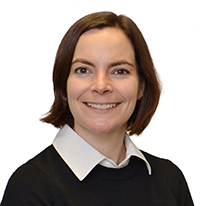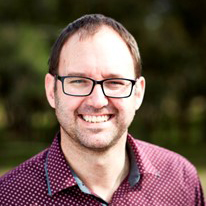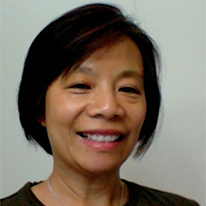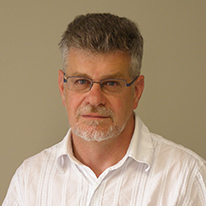One Health Aotearoa Symposium 2018
Our fourth symposium was held on 12–13 December 2018 in Wellington.

The aim of the One Health Aotearoa symposiums is to bring together infectious diseases scientists and professionals from the fields of human, animal and environmental health in order to address priority One Health issues.
The symposium included sessions on emerging infectious diseases, mahinga kai and mātauranga Māori, water quality, One Health economics and antimicrobial resistance.
The four plenary speakers were Alison Mather (Quadram, UK), Colleen Lau (Australian National University), Garth Harmsworth (Manaaki Whenua – Landcare Research) and Ross Thompson (University of Canberra).
The 4th OHA Symposium programme
| Presenter | Institution | Presentation title |
|---|---|---|
| Antimicrobial resistance | ||
| Alison Mather | Quadram Institute Bioscience, UK | PLENARY Sources, spread and sequencing: Using genomics for a One Health perspective on antimicrobial resistance |
| Jack Heinemann | University of Canterbury | Antibiotic stewardship requires an integrated approach to minimising the chemical exposome [PDF, 3MB] |
| Sarah Mitchell | University of Otago | Understanding AMR in New Zealand [PDF, 1MB] |
| Leah Toombs-Ruane | Massey University | Exploring pet ownership as a risk factor for community-acquired extended spectrum β-lactamase and AmpC β-lactamase infection in humans |
| Pippa Scott | University of Otago, Christchurch | Whole-genome sequencing of Staphylococcus aureus isolates from a New Zealand primary school |
| Kay Ramsay | University of Otago | Comparison study of the antimicrobial susceptibility of Pseudomonas aeruginosa isolated from the environment and people with cystic fibrosis |
| One Health economics | ||
| Shaun Awatere | Manaaki Whenua - Landcare Research | Whakatipu Rawa mā ngā uri whakatipu – Enhancing the well-being of future generations |
| Sue Cassells | Massey University | Is it time to estimate what we are willing to pay for drinking water free of contamination? [PDF, 1MB] |
| Emerging infectious diseases I | ||
| Colleen Lau | Australian National University, Australia | PLENARY: Globalisation of One Health and Emerging Infectious Diseases [PDF, 16MB] |
| Cord Heuer | Massey University | Emergence of a new Leptospira strain causes public health concerns [PDF, 1MB] |
| Sandy Slow | University of Otago, Christchurch | Characterising the (epi+)Genome of Legionella longbeachae Serogroup 1 Clinical Isolates [PDF, 3MB] |
| David Hayman | Massey University | Infectious disease transmission at the human-animal interface in rural Uganda |
| Leah Grout | University of Otago, Wellington | Dairy cattle exposure and zoonotic disease in New Zealand [PDF, 2MB] |
| Emerging infectious diseases II | ||
| Lucia Rivas | Environmental Science and Research | Yersiniosis – a One-Health approach for a growing problem in New Zealand [PDF, 2MB] |
| Reed Hranac | Massey University | Association of ebolavirus spillover and birthing patterns of African bats |
| Marie Moinet | Massey University | Leptospira infection at the wildlife/livestock interface in New Zealand: results from a cross-sectional study [PDF, 2MB] |
| Nick Wilson | University of Otago, Wellington | The 1918 influenza pandemic and persisting lessons for modern day New Zealand [PDF, 2MB] |
| Mahinga kai and mātauranga Māori | ||
| Garth Harmsworth | Manaaki Whenua - Landcare Research | PLENARY: A Te Ao Māori perspective of ecosystems to explore complex multi-faceted issues and challenges in One Health [PDF, 9MB] |
| Georgia Bell | Environmental Science and Research | Mahinga Kai He Pou Herenga Tāngata, Haere Ake Nei, Haere Ake Nei: The Development of a Food Safety Framework for Mahinga Kai [PDF, 2MB] |
| Thomas Devine | University of Otago | Organ-Altering Microbes: The Role of the Microbiome in the Regeneration of Xenopus laevis tadpole tails |
| Donna Cormack | University of Otago, Wellington | Critical approaches to health research: how racism can affect our research |
| One Health science and policy | ||
| Dacia Herbulock | Science Media Centre | Science in the media – spin, hype and a growing role for experts |
| Ian Fuller | Massey University | Global Health: A catchment systems approach [PDF, 6MB] |
| Annette Bolton | Environmental Science and Research | Cross-sectoral Action Required for Adaptation to Climate Mediated Health Impacts |
| Tamara Riley | Australian National University, Australia | One Health Approach to Animal Health and Management in a Remote Aboriginal Community |
| Juliet Gerrard | Prime Minister's Chief Science Advisor | Rigorous, transparent, accessible and inclusive – interpreting principles for science advice in the context of Aotearoa, New Zealand |
| Water quality | ||
| Ross Thompson | University of Canberra, Australia | PLENARY: The emerging issue of pharmaceutical residues in freshwaters: an ecological perspective |
| Adrian Cookson | AgResearch | From Tibet to Pukaha: genomic analysis of Escherichia coli isolated from a mainland island bush environment |
| Louise Thornley | University of Otago, Wellington | Threats to water quality from storm and flood events: A seven decade analysis for New Zealand |
| Olga Pantos | Environmental Science and Research | Microplastics in the environment: implications for the microbial world [PDF, 3MB] |
| Shahista Nisa | Massey University | Metabarcoding with MinION: Pathogenic Leptospira in Environmental Water samples [PDF, 2 MB] |
| Infectious diseases and inequality | ||
| Michael Maze | University of Otago, Christchurch | Zoonotic infections and inequality: leptospirosis in Tanzania |
| Jo-Ann Stanton | University of Otago | Reliable sample preparation technology for Point-of-Need applications [PDF, 25MB] |
| Sandra Hotu | Auckland District Health Board | Stop counting, do something! A decolonising approach to address health inequity for Māori with chronic airways disease |
| One Health Aotearoa | ||
| Nigel French | One Health Aotearoa Co-director | One Health Aotearoa update |
Plenary speakers
Dr Alison Mather
Research Leader, Quadram Institute, United Kingdom

Alison is an epidemiologist who studies the evolution, origins and transmission of bacteria between different host populations, using a combination of approaches from epidemiology, ecology and genomics. Her particular research focus is on bacteria that are resistant to antimicrobial drugs, and in understanding the relative contributions of animals, humans, the environment and food to the overall burden of bacterial disease and antimicrobial resistance.
Alison is a Research Leader at Quadram Institute Bioscience in Norwich, UK and a Food Standards Agency Fellow.
Professor Ross Thompson

Chair of Water Science, Institute for Applied Ecology, University of Canberra, Australia
Ross is a freshwater ecologist with interests in the study of biodiversity and the restoration of landscapes. His fundamental research is in food web ecology; seeking the rules that determine how natural communities assemble and persist. His applied research addresses the ways in which food webs can be influenced by anthropogenic factors including urbanisation, land clearance, pharmaceutical contamination, river flow diversion and restoration, and invasion. He has an active research program on aquatic biodiversity and ecosystem function in urban and rural landscapes.
Ross has published more than 100 papers, 10 book chapters and more than 200 scientific reports. He sits on the Australian Research Council College of Experts and has recently stepped down from the New Zealand Marsden Panel. His work has strong links to government and industry, and Ross sits on a number of senior technical advisory panels for local, state and federal research programs.
Dr Colleen Lau
NHMRC Fellow, Department of Global Health, Research School of Population Health, Australian National University, Australia

Colleen is a clinician with expertise in travel medicine and tropical medicine. Her research interests include infectious disease epidemiology, emerging infectious diseases, environmental health, spatial epidemiology, travel vaccinations, malaria prophylaxis, tropical medicine, and the impact of global environmental change on infectious diseases.
Colleen has a particular interest in the eco-epidemiology of leptospirosis, and the impact of global environmental change (including climate change, flooding, population growth, urbanisation, agricultural intensification, and biodiversity loss) on the transmission dynamics of this disease. Her work has included eco-epidemiology studies and risk mapping of leptospirosis in American Samoa, Fiji, and Queensland. She was also engaged as a WHO consultant to help develop Fiji’s National Guidelines for Diagnosis and Management of Leptospirosis.
Another special research interest is lymphatic filariasis elimination in the Pacific Islands, to determine the most effective strategies for managing the endgame of the global disease elimination program. Colleen is currently leading an operational research project on lymphatic filariasis elimination in Samoa, in collaboration with the Taskforce for Global Health, CDC Atlanta, and the Samoa Ministry of Health.
Garth Harmsworth
(Te Arawa, Ngāti Tūwharetoa, Ngāti Raukawa)
Senior Environmental Scientist, Manaaki Whenua-Landcare Research, Palmerston North, New Zealand

Garth’s background is in land resource mapping and assessment, GIS applications and environmental databases, and indigenous values and knowledge research.
Garth is a key researcher in designing and using integrated knowledge systems, frameworks, and models for decision-making, planning and policy, bridging mātauranga Māori and western science, working with Māori communities and organisations, central and local government organisations, building Māori research capability and capacity, and has extensive experience and skills in environmental planning and resource management across Aotearoa-New Zealand and internationally.
Garth has led over 50 Māori/science projects and consultancies, presented over 100 conference and workshop presentations, and authored about 100 refereed publications.
OHA Symposium venue
The 4th One Health Aotearoa Symposium was held at:
Nordmeyer Theatre
University of Otago, Wellington
23 Mein Street
Newtown, Wellington
One Health Aotearoa Symposium sponsors
The 4th One Health Aotearoa was proudly sponsored by:
- University of Otago
- Massey University
- Institute of Environmental Science and Research
- New Zealand Food Safety Science and Research Centre
- New Zealand Veterinary Association
- NZVA Food Safety, Animal Welfare and Biosecurity Branch
One Health Aotearoa Symposium archives
- Visit the 7th One Health Aotearoa Symposium presentations archive
- Visit the 6th One Health Aotearoa Symposium presentations archive
- Visit the 5th One Health Aotearoa Symposium presentations archive
- Visit the 4th One Health Aotearoa Symposium presentations archive
- Visit the 3rd One Health Aotearoa Symposium presentations archive
- Visit the 2nd One Health Aotearoa Symposium presentations archive